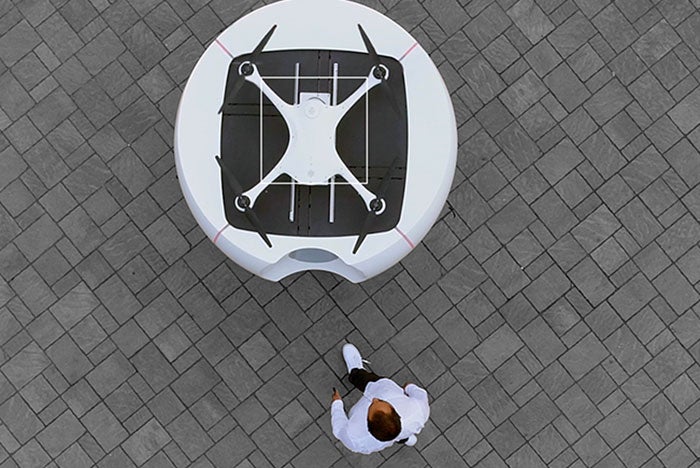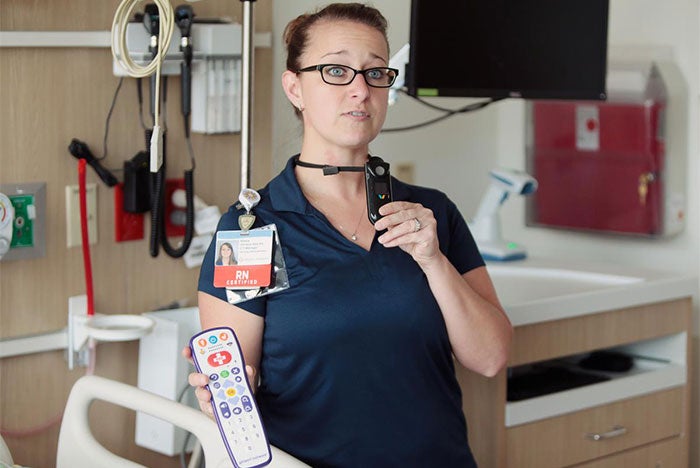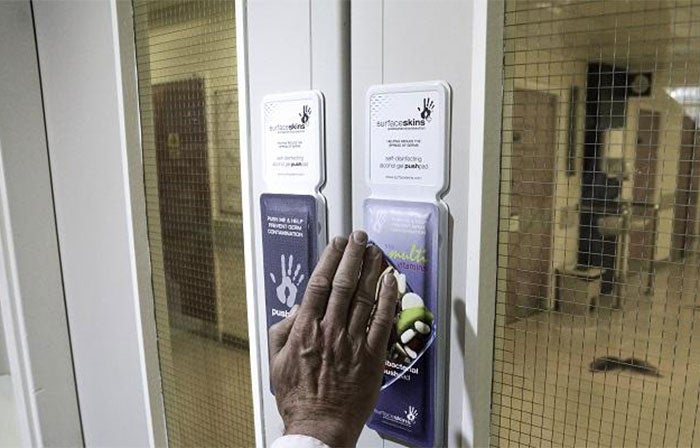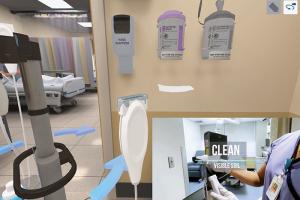Tech talk: Medical drones, communication systems and self-disinfecting doors
Medical drones being stationed at Swiss hospitals

Matternet Station has been approved for use at Swiss hospitals.
Swiss hospitals will soon be served by delivery drones licensed to send and receive medical samples and resources. Switzerland’s government recently approved a system developed by California-based Matternet to be used at health systems across the country.
That Matternet Station includes a two-square-meter robotic drone loading dock, and smart launching and landing pad that enables hospitals to quickly send and receive supplies. The station can be installed on the ground or on rooftop locations and is equipped with technology that guides the Matternet M2 Drone to precision landing onto the platform.
Matternet expects to have the first system up and running by the end of the year and will continue to roll out systems over the next 12 months.
Nurses go hands-free for high-tech communication
Clinical staff at Dayton Children’s Hospital are benefiting from a new technology that makes it easier to communicate with patients across the 155-bed multispecialty hospital.

A nurse shows off the new communication technology being used at the hospital's new patient tower.
The hospital’s new patient tower features hands-free communication badges and a secure texting application from Vocera Communications. The technology is integrated with the hospital’s nurse call system, which allows children to simply push a button that explains their needs, such as “pain” or “potty.” The nurse is alerted and able to respond verbally and immediately.
“While our clinical and communication systems are high-tech, our goal is to make the patient experience high-touch,” says Jayne Gmeiner, R.N., chief nursing officer at Dayton Children’s Hospital. “With instant communication and immediate feedback, we are better able to connect with patients and families and take care of their needs faster.”
Self-disinfecting door pads effective against bacteria
A recent study shows that a new product used on hospital doors can reduce surface bacteria levels by more than 90 percent.

The self-disinfecting door pads are meant to be used as a replacement for traditional aluminum door plates.
Scientists at the University of Leeds, England, have developed Surfaceskins, a specially engineered textile designed to replace traditional aluminum plates used on doors that open by push. The self-disinfecting door pad dispenses a small amount of alcohol gel onto the surface when pushed.
A study regarding its effectiveness was recently published in the Journal of Hospital Infection. The study compared Surfaceskins with aluminum door plates used in a hospital, and found that the Surfaceskins door pads were more effective in reducing levels of Staphylococcus aureus, Escherichia coli and Enterococcus faecalis.




